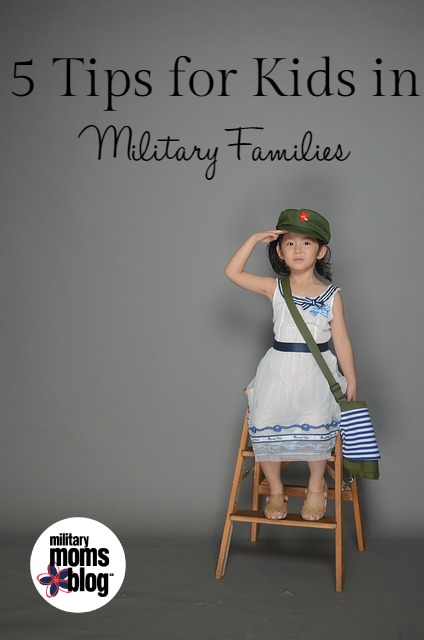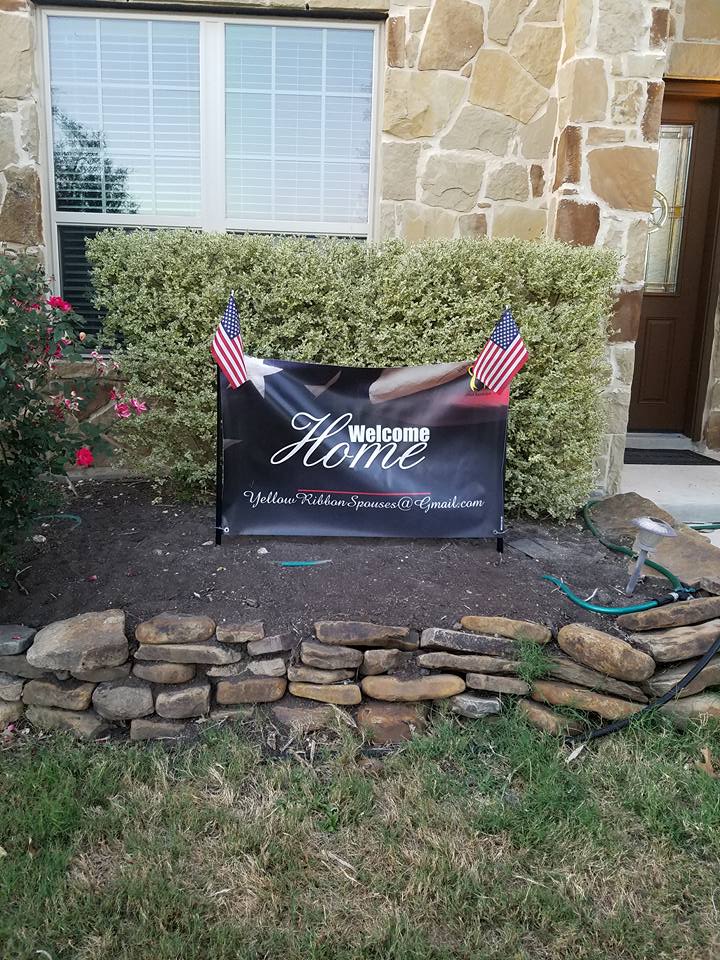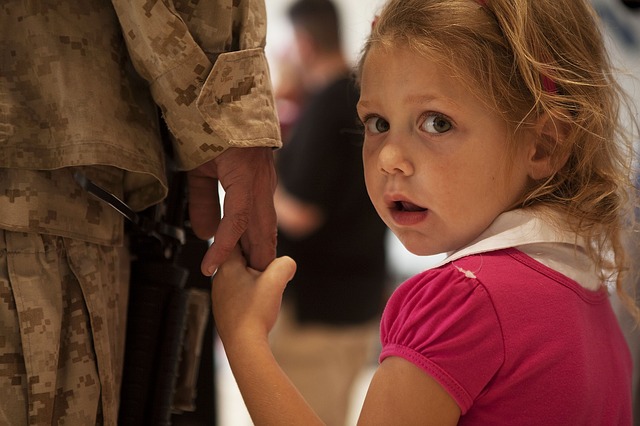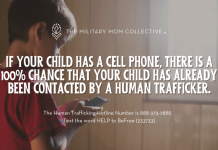
Being a military kid is hard! You might not have a lot of choice in where you live or what you do. There are deployments, PCS moves, a loss of friends, a change in schools (sometimes mid-year), confusion … the life of a military family is not a simple or predictable one, to be sure.
So with that in mind, I’ve put together a list of ways to help children survive the military lifestyle.
Five Tips For Kids In Military Families
1) Look out for special opportunities that come your way!
Want to attend summer camp? There are a variety of summer camps that are free or have a discounted rate for military children. These camps are located all across the country and provide many exciting opportunities. Children can participate in activities like archery, riding horses, a ropes course, swimming and more!
Are you a high schooler getting ready for college? Wondering how you’ll possibly afford to go to college? Scholarships for military children are available from many sources such as the Fisher House Foundation, Thanks USA and Military.com. There also are many other great scholarship resources out there (some specific to your base or installation) so be sure to look around!
Here is a great list from Military One Click with 25 other wonderful programs available to military children.
2) Volunteer your time — do something that brings a smile to someone else.
Here are some ways you can volunteer to help those around you:
1.If your neighbor is about to come home from a deployment, ask his or her family if it would be OK to put up a “welcome home” sign or yellow ribbon.


2. Make a Difference Day is Saturday, 28 October. Encourage your friends, classmates or neighbors to do something to help your community.
3. Reach out and introduce yourself to the new kid in your neighborhood or school. Or have fun with them when their mom or dad is deployed. It can be something as simple as walking their dog with them or helping with homework.
4. Bring homemade greeting cards to disabled veterans at a local hospital or elderly folks at an assisted living facility.
5. Check and see if you might be able to help new students at your school. My daughter changed schools in February. Two students at her new school met us that first day and gave us a tour around the campus. It was heartwarming and so helpful! Those two well-mannered, eager young hosts made a HUGE difference, helping my kindergartner feel comfortable as she was walking into her new classroom and meeting her new teacher for the first time.
3) When your mom or dad is deployed, stay in touch with them and find ways to keep busy.
Email and phone calls are always good! Skype, WhatsApp and other types of video calls can really make a difference as well. You also can send letters and packages, especially for special occasions or holidays.
Keep a journal, scrapbook or photo album. This will be great to share with your deployed parent when they come back home so you can “catch up” on things that they missed. It can also be a great thing to send in a care package. When my husband was deployed, we put together a photo book for him to see what we were doing in his absence. It was a great way to stay in touch over such a long distance!
Elementary school students may benefit from these activities:
Paint or draw pictures reflecting feelings and thoughts about how to make things better
Write in a journal
Write cards or letters to the deployed family member
Make a memory book or calendar reflecting positive thoughts and actions
Middle school and high school students may benefit from these activities:
Engage in art activities
Write poetry or stories
Relax by doing deep breathing and muscle relaxation exercises
Exercise
Listen to music
Participate in extracurricular activities (sports teams, drama, choir, etc.)
4) Stay in touch with your old friends!
As a military child, you have the chance to make friends from all walks of life, living all over the world. But, it also means moving a lot and leaving those friends. So, when your friends move or you move to your family’s next assignment, exchange email addresses. Be sure to save them in a safe place (ask for help from your mom or dad, if you like).
As you get older, it’s likely that you will cross paths with your friends again, somewhere! Don’t be surprised, either, if you meet friends of friends. You can keep in touch with your classmates from school, your neighbors down the street, and favorite teachers, teammates or coaches from school, sports, and other after-school activities.
Like my two girls, I’ve lived in different places. I had to say goodbye to friends as the Air Force moved my family while I was growing up. It was bittersweet to leave a school and friends that we really enjoyed, but it also was exciting to get a fresh start at the next place.
A couple months ago, I had breakfast at a French bakery with a former classmate and friend from a Marine Corps family. While visiting my family in San Diego, I spent a Sunday morning with a friend from seventh grade in Okinawa, Japan. It was so wonderful to reconnect with her and hear about her life teaching middle-school students now! She is very much the same; a smart girl who knows how to make people laugh and teach people about useful things.

5) Be a good citizen and representative of the USA!
If your family is lucky and gets a chance to live in another country, please remember that people there look at you as an example of all Americans — especially if they haven’t ever been to our country. What does this mean? You are an ambassador; what you do and say are very important. People in the foreign country see you as a representative of the United States of America, so always be nice to the people around you–even when you don’t think anyone is paying attention. Be patient with those people whose first language is something different from yours. If they don’t understand what you are saying, don’t shout or say the same thing louder. Try the same volume in your voice; just talk slower, using simple words. If your family has a phone with Google translate, maybe you can use it to order food or buy something when you don’t know what to say (in a foreign language). Better yet, study and learn the language so you blend in with the people there.
It is important to remember your mom or dad has helped to make this world a better place. They have signed up to keep our country safe and protect the freedoms we have, at home in America. Sometimes it is hard to see how lucky we are, as Americans, until we go to another country. You have opportunities that are unique to being in a military family–look for them, appreciate the special people and good things in your life!
What tips do you have for military kids?
Author’s note: Although this article is focused on kids in military families, please share with families of DoD civilians –especially if they move or have a mom or dad deployed, or just want to help military families. Thank you!












This is great! Thank you, Linda!
One thing I remember doing with my family as a military brat was exploring the local culture, attractions, temples, and sights. We saw a habu and mongoose fight at a local zoo in Okinawa, went into caves from WWII, and tried the local cuisine. What adventures!
I enjoyed the cherry blossom festival too — as well as the banging of pots and pans in the stands, during baseball games! Teppanyaki steak is my favorite and that was my choice for Mother’s day dinner this year, as well as my older daughter’s birthday dinner. . .
Great memories, Elka — excellent suggestion/advice, to take advantage of the culture, history and cuisine of the local area wherever you may be stationed. . .
Comments are closed.